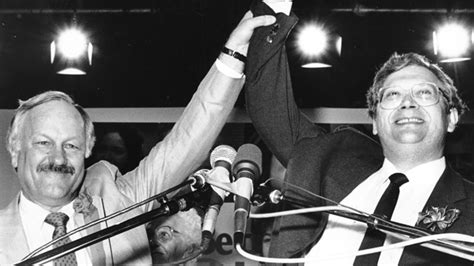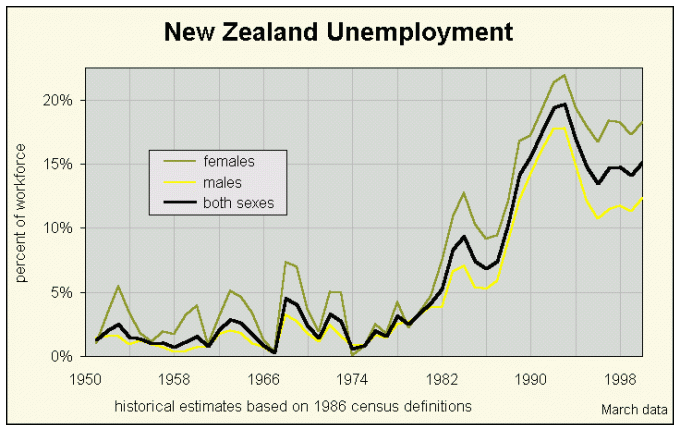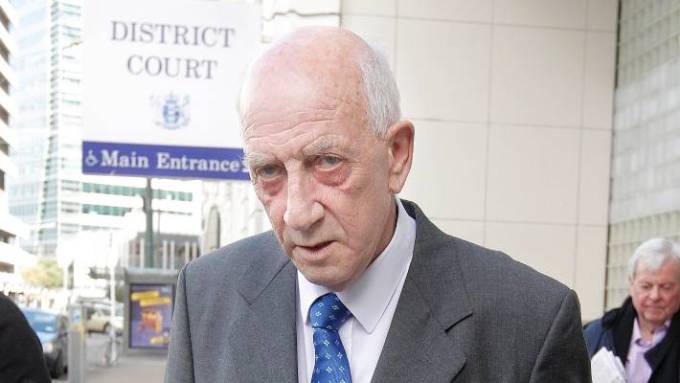The photo above is of my local beach in Northland, New Zealand and is typical of the natural beauty that surrounds me. I love the crazy town I live in and the people for the most part are exceptionally friendly. As a relatively new citizen, I also have no intention of moving back to the UK, as long my arse points down. The summers are long and relatively hot, while the winters are mild but wet, all this contributes to our wonderful environment. However, despite all you may have heard about New Zealand, it is not an egalitarian society and hasn’t been so for close to four decades.
Prior to arriving in New Zealand more than eight years ago, I was under the illusion that Aotearoa (New Zealand) was largely a fair place. This idea may have arisen from stories told by visiting Brits, suggesting that New Zealand was akin to the UK in the 1950’s. Although 1950’s Britain certainly wasn’t a socialist paradise, it did boast less disparities between rich and poor than what can be observed today. Up until the late 1970’s most elected governments in the UK were largely social democratic by nature despite the colour of rosette worn. Economics followed a Keynesian prescription stretching all the way through to the 70’s. On the other side of the world, New Zealand also possessed an egalitarian streak, but this all came to a crashing halt upon the arrival of neoliberalism in the mid 80’s.
In 1984 the Labour party was swept to power following a growing dissatisfaction with the Prime Minister at the time Robert Muldoon. Muldoon’s government like many before, ran a tightly controlled economy, an extensive welfare state, plus widespread state ownership in many sectors. But two major events occurred in New Zealand leaving the door ajar for competing economic ideas. Firstly, New Zealand lost a key trading partner when the UK joined the EU and secondly a series of oil crises in the 70’s sent the Kiwi economy spiralling into recession. In just 15 years New Zealand slipped from the 6th wealthiest country in the world to 19th. No amount of controls on prices, wages, rents and interest rates could save the economy. However, what was to replace it proved to have huge societal repercussions.

The fledgling Labour government headed by the likeable David Lange, who became the acceptable face of the party, was intent on ushering some major changes. Leading this economic charge was Finance Minster Roger Douglas, who would later go on to form the ACT Party, a US libertarian style free market party. Using an economic ideology later known as ‘Rogernomics‘, Douglas almost instantly scrapped the majority of financial controls, while deregulating the markets and removing or relaxing foreign investment regulations. Furthermore, taxes was slashed for high earners, while a regressive ‘goods and service tax’ was introduced, hitting low and middle income earners particularly hard. Douglas even tried to implement a flat tax, but this proved a bridge too far.
Like Thatcher in the UK, the NZ government embarked on a massive sell off of any government assets not nailed down, either fully or partially. Energy companies, the main airport, three banks and Tower Insurance, among others were all flogged off. All this continued unabated into the 90’s when National took over control. During this period the national rail network was sold off to financiers, quickly ran into the ground and eventually bought back by the government during Helen Clark’s tenure. Public services were purposefully starved of cash, thus affecting the most vulnerable in society. As an example, by the end of the 1990’s practically all psychiatric hospitals were closed, with these responsibilities left to private companies. In addition the 1990’s witnessed university tuition fees rise by a 1000% and this continues to skyrocket. Fees are now the 4th highest among first world countries.
The most startling aspect of these ‘reforms’ was the terrifying pace it was all carried out with. Roger Douglas once wrote, “it is uncertainty not speed that endangers the success of structural reform programs”. He continued, proclaiming, “speed is an essential ingredient in keeping uncertainty to the lowest possible level”. Douglas wasn’t remotely worried about uncertainty for everyday people who faced increased job insecurity or unemployment, but rather the fear of scaring potential investors away. This manufacturing and subsequent exploitation of a crisis is what Naomi Klein refers to in her book ‘The Shock Doctrine‘ as disaster capitalism. In the US, however, New Zealand was held up as the ‘gold standard’ of free market capitalism.
Far from being a success, between 1985 and 1992 the economy contracted by 1%, while other OECD countries increased by an average of 20%. One in six Kiwis were said to be living below the breadline by 1992 as poverty soared. Unemployment increased to a high of 20% by the mid 1990’s, but this was all part of the government’s plan to keep inflation low. As wages decreased, so did benefits, while the criteria to obtain assistance became ever more stringent. When a recovery did finally occur it was achieved primarily through insecure and part-time jobs, as witnessed all over the ‘anglosphere’. Unsurprisingly New Zealand saw most of the gains passed to the wealthiest, as income inequality increased at a rapid rate.

After nearly 35 years of neoliberalism, New Zealand’s citizens appear to have a warped sense of political reality. This has resulted in the Overton window veering sharply to the right. Now, any hint of social democratic policies are viewed with deep suspicion. Many New Zealanders hypnotised by decades of a right wing narrative from both the press and successive governments claim that the state is over-generous to less fortunate citizens. Business leaders are constantly proclaiming that NZ is overregulated and hostile towards corporations. On the contrary, all evidence indicates the opposite, as NZ has topped the World Bank’s “ease of doing business” report three times since 2005. Furthermore, Forbes has ranked New Zealand in the top three “best countries to do business with” each year since 2010.
In certain quarters New Zealand is regularly labelled a ‘nanny state’, without of course any shred of evidence. Neoliberals have always contested that a developed welfare state discourages enterprise and hard work. Accusations such as this initially arose during the Labour government’s tenure between 1999 and 2008 led by Helen Clark. Although Clark’s interventions did manage to apply the brakes to runaway capitalism, it disappointingly fell well short of reversing the damage caused by neoliberal policies in the 80’s & 90’s. Counter to baseless right wing claims, since 2001 the government’s social spending as a percentage of GDP has been woefully short of the OECD average. Disappointingly, using this metric, NZ has less in common with Sweden, Finland, France and Denmark, while appearing more in line with US social policies.
Like many countries in the ‘anglosphere’ there are a plethora of myths circulating around beneficiaries allegedly cheating the system and ripping off tax payers. Or fables of numerous families turning their home into baby making factories for the sake of a few dollars. After a fairly minimal period of time investigating this, it quickly becomes apparent that most of the information is anecdotal, with a few genuine cases being blown out of proportion to fit a particular ideology. The National government led by John Key which came to power in 2008 were wedded to these myths. This was confirmed by policy, in 2012 single parents who wanted to keep their benefits were forced to start looking for work as soon as the child reached 5, this was decreased dramatically from 18. Two years later the government promised to slash welfare recipients by 25%.

In New Zealand after 30 years plus of policies aimed at cultivating individualism, a third of the country’s children now live in poverty, while more and more people have resorted to sleeping in their cars as rent becomes impossible to afford. Meanwhile, attitudes in many corners of the nation have hardened. Sir Bob Jones leading business figure and all round heartless bastard, proclaimed beggars were “fat Maoris” and a “bloody disgrace”. In support of this ideology out of forty thousands Kiwi’s poled 72% believed begging should be outlawed. Ideas such as this were exemplified by the National government crackdown on welfare fraud allegedly costing the country $30 million. This is chump change when you consider tax evasion costs the nation 33 times more, however, you are 10 times more likely to be prosecuted for benefit fraud, whose ranks are generally made up of the poor and powerless.
Prior to Jacinda Ardern becoming Prime Minister, in an ideological quest to attain budget surpluses public services were decimated. In particular, between 2010 and 2015 the health budget was slashed by $1.7 billion. The Department of Conservation was mercilessly defunded and support for education was cut at all levels. John Key’s government also steadily eroded workers rights, while the wealth gap widened more quickly than any country in the developed world. This was aided by tax cuts for the wealthy and a rise in ‘goods and services tax’, primarily targeting the poor. Even within the last few months, a proposal for a diluted capital gains tax was voted down in parliament, highlighting that power remains in the hands of a few well connected individuals.
The evidence seems to indicate that New Zealand is a nation that has left it’s egalitarian roots far behind and yet is determined to maintain the façade of an equal society. In a way, it could be argued that the political direction over the last 30 years or so doesn’t match up with the general nature of the vast majority of New Zealanders. There appears to be a kind of societal schizophrenia at play. The vast majority of New Zealanders are often civic minded, fair people, who will generally help you out if you need a hand. In contrast the political parties that have often been elected over the last 4 decades have encouraged individualism, a free market orthodoxy and the idea of profit over people. All the while erroneously convincing the citizens of New Zealand that they still have equality of opportunity.
Many people in New Zealand don’t even remember a time before neoliberalism, therefore, are unlikely or unwilling to imagine another way of being. We regularly observe the nation’s successes measured by GDP, we celebrate gross opulence by publishing varying rich lists and are coerced into thinking wealth directly equates to success. We are repeatedly told that the present economic system is the only viable way to prosper. But who is specifically gaining out of all this and who are the people trying to convince us that we already have the optimal economic/political system?
Predominantly, it’s the financial winners who are the ones selling us this capitalist lie and who coincidentally have the greatest opportunity to influence policy. But is unbridled capitalism the pinnacle of humanity and more importantly does economic inequality even matter to most New Zealanders? If the honest answer is no, then the left have failed and we have an obligation to create a narrative that encourages people to consider a more compassionate and fairer way of organising society. A story is required, one that may even appeal to the most self centred of right wing bigots, or maybe not. New Zealand has lived under a neoliberal system for decades, but that doesn’t necessarily prove anything in terms of its effectiveness. A new narrative would require us to explain how economic inequality negatively affects everyone including the rich.
The world and in particular the environment is incompatible with neoliberalism. Infinite growth on a finite planet simply cannot and will not work. Closer to home, New Zealand has some shocking suicide figures particularly for a first world country. We also possess third world health issues such as rheumatic fever, which is heavily linked to socio-economic factors and an embarrassingly ever expanding homeless community. Supporters of capitalism would predictably suggest many of these problems are due primarily to personal responsibility, however, you can only play the hand you’re dealt. For many people life is like trying to play a game of Monopoly with one dice and a tenth of the starting cash, while being expected to compete with everyone else.
The economic and political pathway New Zealand has taken for decades, also feels incongruent with the largely collectivist society I witness on a daily basis in Northland. It’s a place where work meetings often involve a shared lunch, where people bring in what they can afford. On many occasions colleagues will fetch in fruit and veggies from their garden into work, with a sign simply saying “eat me”. It’s a community that often trade skills to get jobs done, rather than paying in cash. I live in a region where I obtained my stash of firewood for the winter by helping a friend split his supply. That’s the New Zealand I know and love. So it’s time our politics and economic system reflect our innate compassionate and collectivist ideals. This is something through experience I know Kiwis are more than capable of doing.
Note: Since writing this article, it would only be fair to acknowledge the government’s wellbeing budget. This should be viewed as a valiant attempt on the road to addressing nine years of societal neglect under John Key. Of course, this is not perfect and has detractors on both sides of the political aisle. However, it must be recognized that the government is restricted, required to deliver this within the existing neoliberal framework. Proposals such as the wellbeing budget are deeply heartening and tentatively suggests New Zealand could be on course for a systematic erosion of this toxic, destructive ideology.







